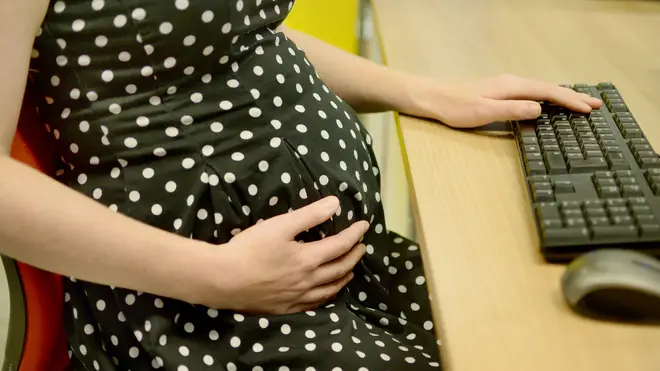
Ali Miraj 6pm - 9pm
26 May 2021, 00:04

For increasing numbers of working families, the notion of hard work as a route out of poverty is failing to deliver, the IPPR said.
Around one in six working households face living in poverty, fuelled by rapid house price growth and a lack of affordable childcare, according to a think tank.
The UK’s relative poverty rate among working households hit a new high of 17% before the coronavirus pandemic took hold in early 2020, the IPPR (Institute for Public Policy Research) said.
For increasing numbers of working families, the notion of “hard work” as a route out of poverty is failing to deliver – and while work still pays, the returns are diminishing, its report argued.
Two-earner families where one partner works full-time and one works part-time are also increasingly being pulled into poverty, according to the findings.
For people in this group, the chances of being pulled into poverty has doubled over the past two decades, from one in 20 to one in 10, the IPPR said.
Even for households with two people in full-time work, the chances of being pulled into poverty has more than doubled over the same period, from 1.4% to 3.9%.
Households are generally defined as being in relative poverty when their income after housing costs falls below 60% of the median average household income. Adjustments are made to enable meaningful comparisons between households with different numbers of adults and children.
Working poverty rates are particularly high in London, Wales and the North of England, according to the IPPR, which describes itself as a progressive think tank.
Spiralling housing costs among low-income households, low wages, a social security system that has failed to keep up with rents, and a lack of flexible and affordable childcare sit behind the growth in poverty, the No Longer Managing report found.
The IPPR said the economy’s over-dependence on house price growth is a key factor pushing up poverty, as more families rely on renting privately. One in every four households is projected to be renting from private landlords by 2025.
The think-tank said much of the multibillion-pound benefits bill supports housing costs in the private sector, with any increase effectively channelled into the pockets of private landlords. The think tank estimates £11.1 billion of housing support spending went to private landlords last year.
The report argued that potential reforms could include setting a house price inflation target as part of the Bank of England’s remit.
It also called for higher state subsidies for children under five and wraparound care for school pupils, with funding going directly to childcare providers.
Without long-term reforms, Government will face a perpetual choice between paying rising social security bills to offset growing in-work poverty, or allowing the number of working families in poverty to increase unchecked, the report warned.
The research used households’ income data from the Department for Work and Pensions.
Clare McNeil, IPPR associate director and head of its future welfare state programme, said: “These shocking new figures should be a wake-up call for everyone concerned about our future.
“The UK economy’s dependence on ever-rising house prices, and the lack of affordable housing, have trapped us in a vicious circle which, unless broken, will condemn us either to a constantly rising social security bill, or to ever-increasing poverty among working households.
“A growing private rented sector coupled with high rents enriches property owners at the expense of renters, and represents a transfer of wealth away from people who already have very little, into the hands of others who are steadily accumulating more.
“We need an alternative to what the Government calls ‘levelling up’. That should look beyond headline incomes to the true costs and obstacles people face when struggling to make work pay. Otherwise more and more families who were once ‘just about managing’ will join the growing number who are ‘no longer managing’.
“Short-term fixes are needed to alleviate the immediate crisis, but to solve the underlying problem we need a far deeper rethink of housing, childcare, social security and work.”
The Bishop of Dover, the Rt Revd Rose Hudson-Wilkin, who is a member of IPPR’s welfare state advisory panel, said: “The gulf between the rich and the poor is growing, as the pandemic showed us all too clearly. We must do more as a country to ensure that the resources we have been blessed with are shared more equally – now, and in the future.”
A Government spokesperson said: “We’re spending billions to boost welfare support for those most in need, help parents access free child care and by increasing and maintaining Local Housing Allowance rates in recent years, support for private renters is still significantly higher now than it was before the pandemic with £12 billion being invested in affordable housing over the next five years.”
Here are the proportions of those living in working households in relative poverty, according to the IPPR. The figures compare the period 1996/7 to 1998/99 with 2017/18 to 2019/20, except for Northern Ireland where the figures are for the period 2002/3 to 2004/5 followed by 2017/18 to 2019/20.
– North of England, 14%, 18%
– South of England and East, 13%, 15%
– London, 15%, 22%
– Midlands, 13%, 18%
– Wales, 16%, 18%
– Scotland, 12%, 14%
– Northern Ireland, 12%, 13%